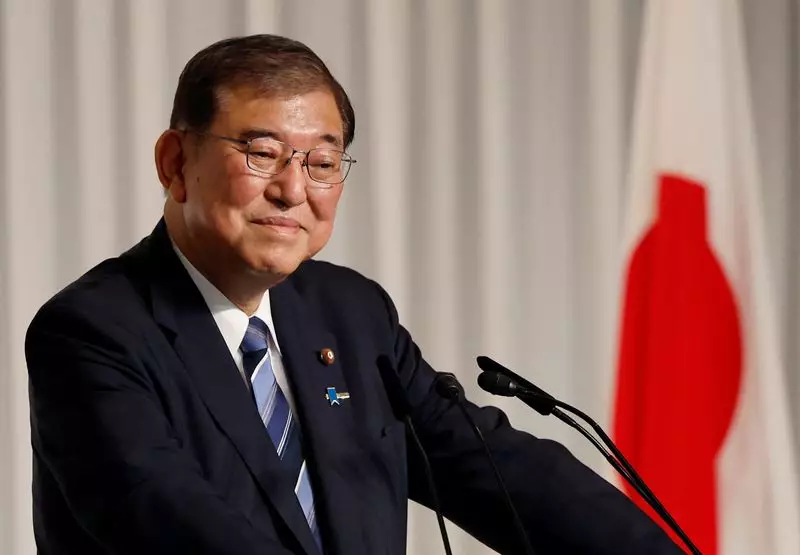As Japan prepares for the expected leadership of Shigeru Ishiba, the economic landscape appears poised for significant transformation. Following Ishiba’s victory in the ruling Liberal Democratic Party (LDP) leadership contest, he has expressed a commitment to maintaining loose monetary policy while being receptive to the Bank of Japan’s (BOJ) potential interest rate hikes. His approach signals a nuanced understanding of the challenges facing Japan’s economy, which has grappled with stagnation and deflation for years.
Ishiba underscored the prevailing monetary policy during his recent statements, suggesting that while the BOJ would have the autonomy to navigate future interest rate changes, his administration would not oppose necessary fiscal stimulus measures. This stance reflects a delicate balance between ensuring price stability and fostering economic growth, a combination critical for revitalizing Japan’s economy. He characterized his role as one that respects the BOJ’s decisions, indicating a hands-off approach that could potentially lead to more aggressive rate hikes if deemed appropriate by the central bank.
The BOJ’s recent historic decision to raise short-term borrowing costs after a prolonged era of negative rates marks a significant shift, and Ishiba’s victory may remove hurdles for further adjustments. Analysts have noted that his leadership could enable a smoother transition away from longstanding monetary easing policies associated with Abenomics, the strategy of former Prime Minister Shinzo Abe that had garnered both support and criticism over the years.
In his victory speech, Ishiba highlighted the urgent need for Japan to emerge from deflation, placing a particular emphasis on wage increases as essential for driving consumption. He posited that without a tangible rise in consumer spending, any recovery efforts would falter. This statement underscores a broader economic truth: improving household incomes must be at the core of any sustainable revitalization strategy.
The challenges of a stagnant GDP, coupled with wage growth failing to keep pace with inflation, appear to be central concerns for Ishiba. He articulated a vision for economic policies that not only boost wages but also seek to alleviate the pressures of rising living costs on households. Such plans will likely incorporate attempts to curtail food and fuel prices through supportive measures funded by a supplementary budget.
The Role of the Bank of Japan
The implications of Ishiba’s leadership extend beyond fiscal policy; his relationship with the BOJ will be crucial in the ongoing journey toward economic recovery. The current BOJ leadership under Governor Kazuo Ueda has indicated a willingness to raise interest rates provided inflation remains under control. Ishiba’s less confrontational stance towards monetary policy may create a conducive environment for the central bank to make decisive moves.
Economists have projected that Ishiba’s ascendency could result in the BOJ being more liberated in its actions, potentially culminating in rate hikes as early as December, depending on economic conditions. The anticipated shift represents a departure from the policies of Abenomics, signifying a new economic paradigm that calls for a more diversified and sustainable approach.
As Japan stands on the cusp of a new economic chapter under Shigeru Ishiba, the interplay between fiscal policies and the BOJ’s monetary strategy will be watched closely both domestically and internationally. The dual challenge of fostering growth while managing inflation remains at the forefront of national economic discourse. Ishiba’s pledge to consider the implications of rising prices on households highlights his awareness of the pressing economic reality for ordinary citizens.
In essence, Ishiba’s leadership promises a recalibration of Japan’s economic approach—a departure from an era defined by aggressive easing toward a more balanced strategy that prioritizes consumer welfare and sustainable growth. Whether this approach will yield the desired outcome remains to be seen, but the evolution of Japan’s economy merits attention as Ishiba gears up to take the reins of power.

